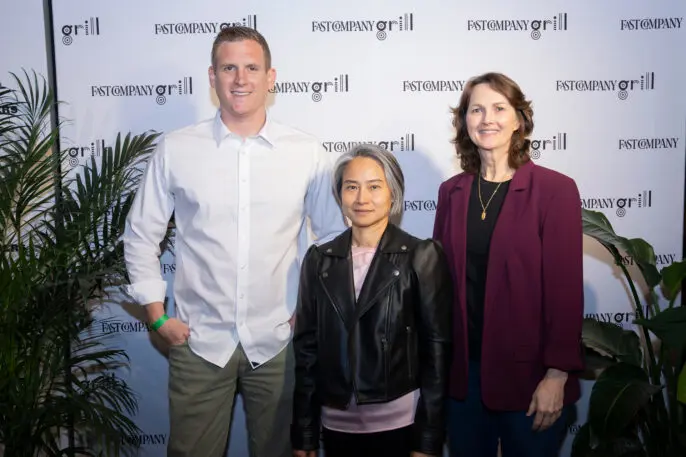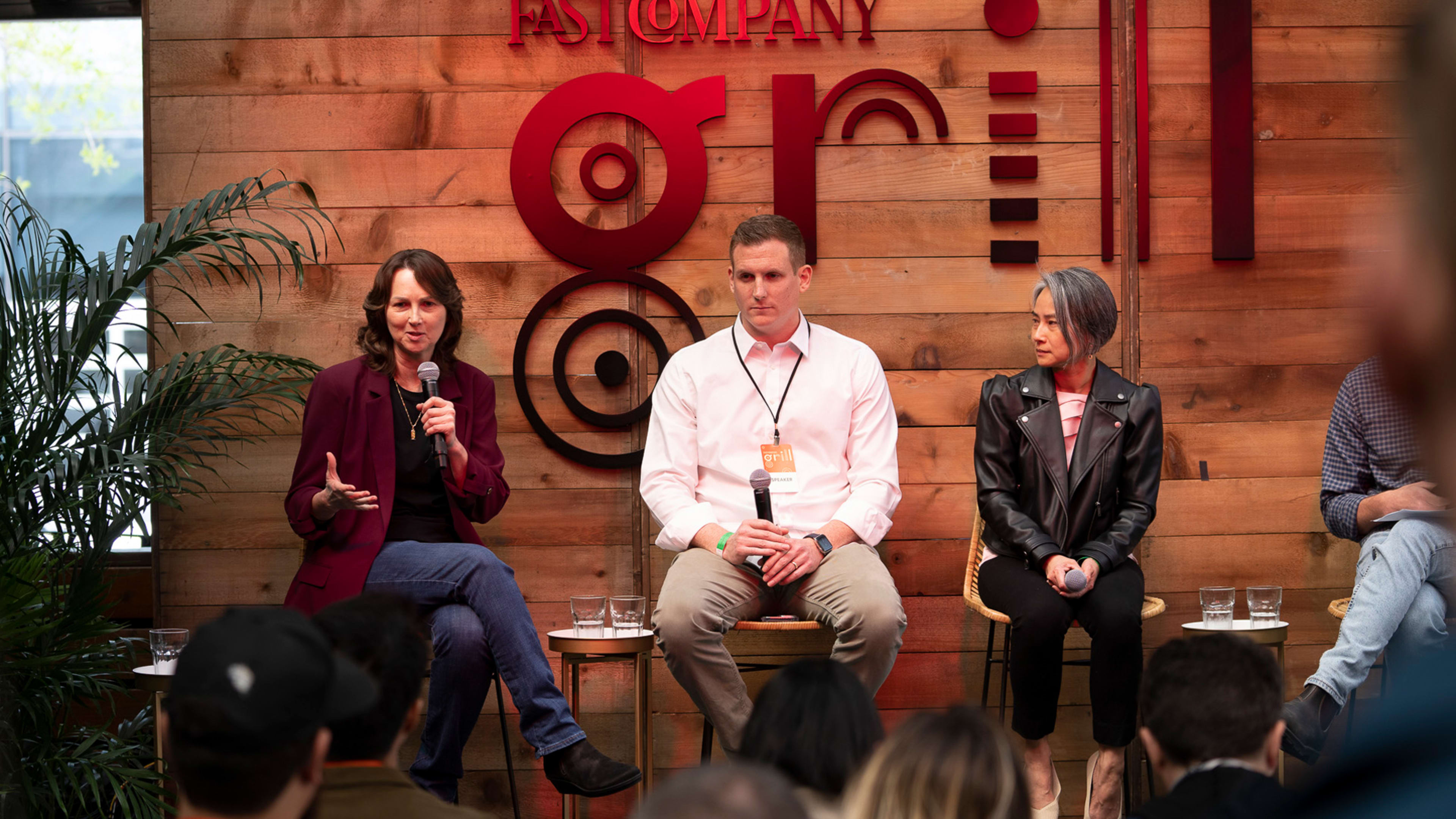With interest rates up and VC money tightening, entrepreneurs working on breakthrough technologies may have to be tougher and more disciplined than ever.
That was a key takeaway from a recent panel at the Fast Company Grill at SXSW. The panel, titled “Breaking Down Breakthrough Tech,” featured Van Truskett, executive director of the Texas Innovation Center, the hub at the University of Texas for bringing engineering and science discoveries and technologies to the market; Jeff Cardenas, cofounder and CEO of Apptronik, founded in 2016 with the goal of bringing forth the next generation of human-centered robots; and Teresa Phillips, cofounder and CEO of Spherex, which adapts video assets for different cultures and languages.
Though their backgrounds diverge, all three panelists develop products that are considered “breakthrough tech,” or technologies that require foundational research and significant time and money to bring to market.
“Because of the nature of the technology that ends up getting commercialized, much of it will originate from R&D labs, many of them in the university sphere,” Truskett said, adding that her research hub at the University of Texas has worked on innovations, including plant-based meats, a compact particle accelerator, robotics, cybersecurity platforms, and 6G tech.

The nature of breakthrough technologies also may be changing. The world may be saturated with low-cost software-based products, such as photo apps and social networks, but the products of the future—virtual experiences, augmented reality glasses, new robots—could require more intense foundational technologies.
“I realized that the next great companies aren’t going to come out of my garage,” Cardenas said. “They’re probably going to come out of a research lab because a lot of this stuff has to have many years of funding for it to be ready to go from early stages out into the real world.”
A good example is the current spate of generative AI products now coming out of well-funded research labs. This development will likely further accelerate as AI becomes infused in technology for more aspects of life and work.
“I haven’t been this excited about new technology since mobile,” Phillips said. “So I think that with artificial intelligence, we can’t even conceive yet of the advances in the things we’re going be able to do.”
For many entrepreneurs in the next decade, the goal will be to apply the right foundational technologies—large language models, for example—to unmet needs out in the world.
Truskett said there’s no shortage of unmet needs, but finding the ones for which a solution would help a wide swath of people takes a lot of work.

“When I’m working with our startup companies, I’m essentially getting them to get out and talking to people of a variety of backgrounds, a variety of potential markets,” he said. “It means making a list, a very diverse list of people, companies, various contacts, and then you actually get on the phone and call them, don’t just email.”
However, Phillips points out that that approach doesn’t work in every situation. “Oftentimes, when you’re doing breakthrough technology, you can’t really ask your customers—they don’t know what they want,” she said. “So you really have to understand the jobs to be done . . . and what are your customers trying to do?”
Then there’s the people challenge. Shepherding new technologies from the depths of the lab out into the light of the free market requires a certain skill set, Truskett said.
“Going from someone who is like talking very technical about the science, which is beautiful,” she said, “to now I’m an academic entrepreneur, and I need to talk more about the marketplace of this technology and its value, and how it’s going to get adopted.” Such founders, who are often either university professors or grad students, need to learn how to make pitch decks and persuade potential investors that both technology and founder have what it takes.
In some cases, that skill set can be spread across two people: a technical genius and a good front person.
“You need someone who’s building it and someone who’s selling it,” Cardenas said. “So if you are the engineer and you are the inventor, you’re going to need someone who’s going to go out and actually get into the world and sell these things, or you’ll have to learn that skill yourself.” He added that having the whole package in one person who can speak both science and sales has its advantages.
The leader or leaders of companies that deal in breakthrough tech products also have to have the ability to make sure everyone is a True Believer in the technology, even when the outside world may not be.
Phillips pointed back to a famous Eisenhower quote about leadership: “He says leadership is getting somebody to do what you want them to do and they think it’s their idea.”
“So I really try to do that a lot with my team—really fire ’em up and help them believe in it as much as I do,” she continued. “And wherever one goes, we all go.”
Recognize your brand’s excellence by applying to this year’s Brands That Matter Awards before the early-rate deadline, May 3.
